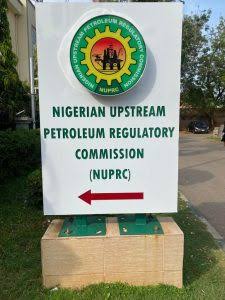The Nigerian Upstream Petroleum Regulatory Commission (NUPRC) has announced a significant boost in the country’s crude oil production, attributing a 300,000 barrels per day (bpd) increase to its “Project One Million Barrels” initiative, launched in October 2024.

Speaking in Abuja during a media workshop, the Commission Chief Executive, Engr. Gbenga Komolafe, revealed that Nigeria’s oil rig count has also risen from 44 to 46 as of June 2025, reflecting growing activity in the sector.

Project One Million Barrels was introduced as part of NUPRC’s third anniversary celebrations, with the goal of increasing national crude oil production by one million barrels within a 12 to 24-month timeframe.
Komolafe credited the progress to strategic reforms and regulatory measures under the Petroleum Industry Act (PIA), noting that production levels have now climbed to approximately 1.7 million bpd. “We started when production had dropped to about one million barrels a day. Today, we are hovering around 1.7 million barrels. At that time, the rig count was only 11—now it stands at 46. That’s a significant sign of industry revitalization,” he said.

The NUPRC boss emphasized that operator feedback has been overwhelmingly positive, pointing to improved performance across key industry metrics. He described the sector as data-driven and highly sensitive to costs and timelines.

Komolafe further explained that optimizing national revenue can be approached in two ways: reducing the unit cost of production or increasing output. “In a ‘do-nothing’ scenario, you lower production costs and raise return on investment. But we chose the ‘do-something’ scenario—stimulating investments and driving output, which is exactly what the Commission is mandated to do,” he stated.
He also clarified that Project One Million Barrels was conceived to harness industry-wide collaboration, breaking down silos among operators and encouraging synergy to maximize production. “We observed that the capacity existed but was underutilized due to isolated operations. This initiative brought stakeholders together, leading to tangible production gains,” he added.
Looking ahead, Komolafe expressed confidence that Nigeria’s oil output will continue on an upward trajectory as reforms deepen and collaboration within the sector expands.




